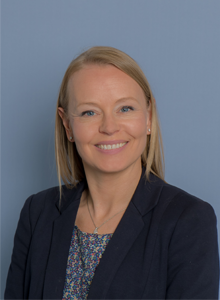Four Deakin University early career researchers have been recognised in the 2023 Victorian Young Tall Poppy Science Awards for their innovative work in health economics, food systems sustainability, early childhood nutrition, and mental health and substance use problems.
The annual Tall Poppy awards are run by the Australian Institute of Policy and Science (AIPS) to honour up-and-coming scientists who combine world-class research with a passionate commitment to communicating science. Recipients are tasked with promoting interest in science among students in all stages of learning, teachers and peers. They also provide understanding and an appreciation of science in the broader community.
Deakin’s Associate Professor Delyse Hutchinson, Associate Professor Rachel Laws, Dr Vicki Brown and Dr Michalis Hadjikakou were recognised at the official Victorian Tall Poppies Awards Ceremony this week.
Associate Professor Hutchinson was also named Victorian Tall Poppy of the Year – marking the third year in a row a Deakin recipient has been honoured with the title.
Introducing our 2023 Victorian Tall Poppy of the Year…
Associate Professor Delyse Hutchinson, The Centre for Social and Early Emotional Development (SEED)

Assoc. Prof. Hutchinson works to understand the developmental origins of mental and behavioural disorders. She has worked as a Clinical Psychologist specialising in pregnancy, postnatal adjustment, child development, and the treatment of mental health and behavioural disorders. She’s particularly interested in understanding the causes and consequences of alcohol and other substance use exposure on development.
‘Mental health and substance use problems are common in the community and can have significant negative impacts on people’s health and wellbeing, including physical health problems, poorer educational and employment opportunities, and social and relational difficulties,’ she says.
‘When mental and substance use problems continue into parenthood, they also have adverse impacts on children and young people’s health and wellbeing, resulting in an intergenerational cycle of mental disorder that is difficult to shift.
‘My research seeks to improve our understanding of intergenerational patterns of mental health and substance use problems from one generation to the next, using data from long-running studies that have assessed families over multiple generations. I also aim to identify critical risk and protective factors that can be targeted across development to inform prevention and intervention approaches on how to break the intergenerational cycle of mental disorder.’
Assoc. Prof. Hutchinson is listed in the top 1% of influential researchers world-wide on alcohol disorders. She holds a competitive NHMRC Investigator Grant ($1.6 million), leading an innovative program on the impacts of mental health and substance use problems on children. Her research has had significant impact, informing national and international policies for the prevention of mental and substance use disorders. She has a passion for community engagement and science communication, having been actively involved in public media over her career, and has held numerous leadership positions developing national health guidelines and informing practitioners and policy makers on the best investments for prevention of mental disorders.







